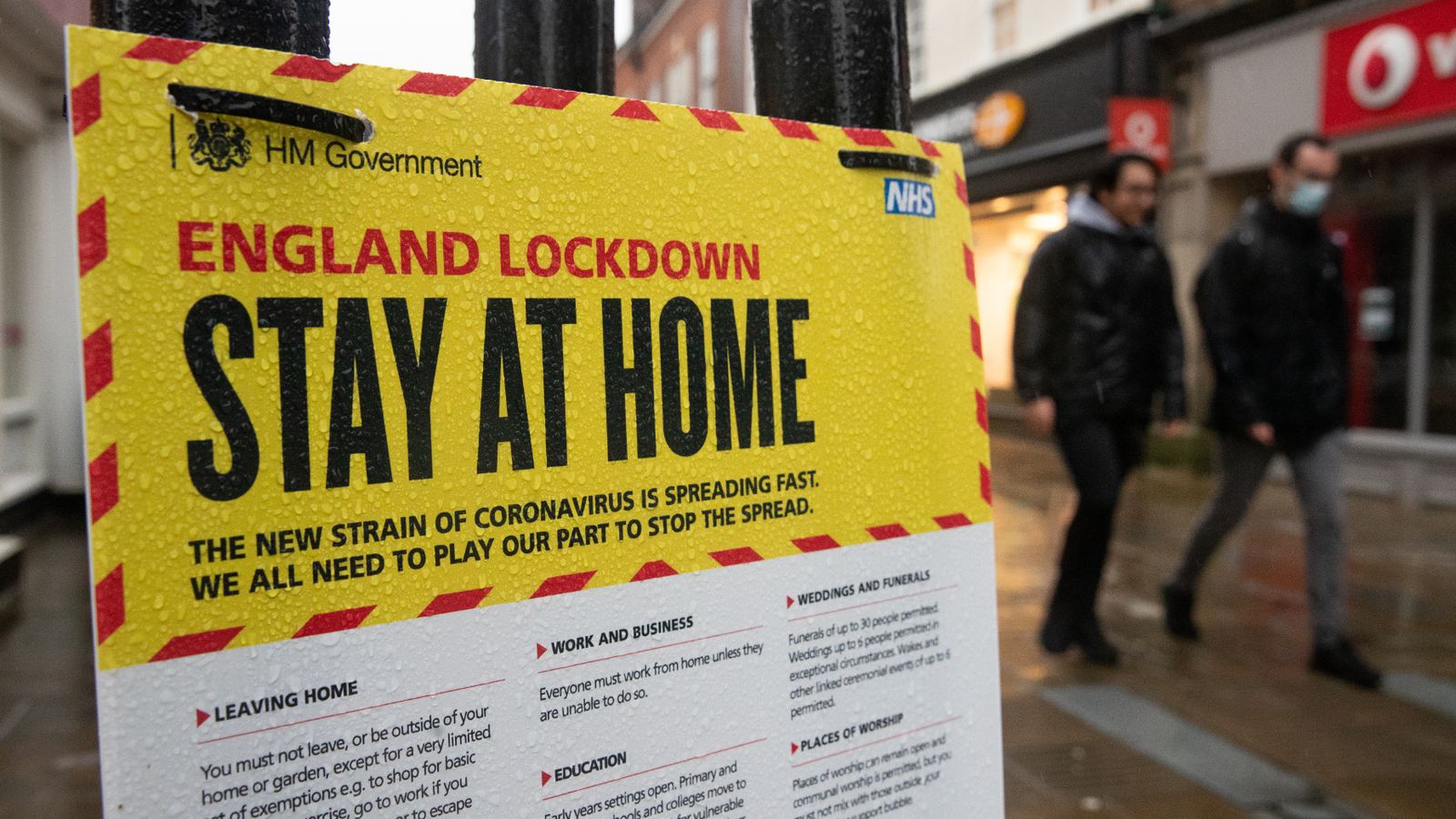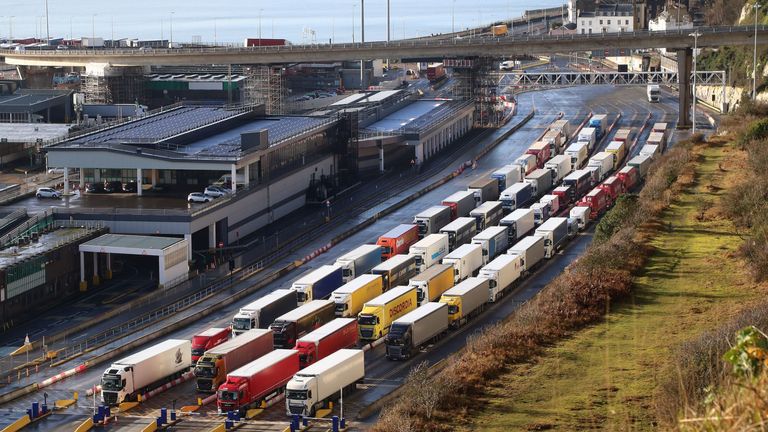COVID-19: IMF tells UK to be ready to redeploy furlough if ‘widespread’ closures needed to tackle Omicron
Britain should be “ready to redeploy” some form of furlough aid if it faces a virulent COVID-19 wave requiring widespread lockdowns, the International Monetary Fund (IMF) has said.
The IMF said fresh waves of COVID represented the “major risk” to the outlook and suggested a limited version of the multi-billion pound job subsidy scheme could be rolled out if these result in firms being forced to close.
Follow live COVID updates
The remarks came as the Washington-based body’s regular health-check of the UK economy pointed to a “mild slowdown” in growth in the new year as latest restrictions designed to tackle the spread of the Omicron variant bite.
It pencilled in GDP growth of 6.8% for this year as Britain recovers from last year’s slump, dropping to 5% in 2022.
Inflation is forecast to peak at 5.5% next spring, and the report warned against the dangers of not raising interest rates to keep price pressures under control. But it also acknowledged the risk of taking action too early, which might hold back the recovery.
Its call to avoid “inaction bias” comes two days before the Bank of England’s latest rates decision, widely expected to see it again put off a rate hike as it waits to see the economic impact of Plan B restrictions.
IMF managing director Kristalina Georgieva also pointed to a Brexit hit to the economy that is likely to worsen in the new year.
“Trade with the EU has dropped significantly and we expect there will be more impact ahead as the custom checks are going to be introduced in UK in the beginning of next year,” she told a virtual news conference.
The IMF said Omicron risked creating further supply chain problems and inflationary pressures – but that “if it or a future outbreak is more virulent this could weigh on confidence and demand”.
It added: “In the event of a virulent COVID-19 wave requiring widespread mandated closures, the authorities should be ready to redeploy a subset of the most successful previous exceptional programmes.”
The IMF cited “a furlough scheme and targeted support to the most vulnerable households and small businesses” as examples of such programmes.
Ms Georgieva said the UK certainly had the “fiscal space” to afford such support if needed.
“I have no doubt that if that becomes a necessity there would be appropriate action,” she added.
The IMF’s report hailed the rapid vaccination campaign allowing the economy to reopen during the summer, saying: “The recovery has been faster than expected amid strong continued policy support.”
But it also noted supply constraints, price pressures and new COVID-19 variants posing risks to the recovery.
There was also a glum note on Britain’s long-term outlook, with GDP expected to settle 2% to 2.5% below where it would have been on pre-pandemic trends.
That was blamed on shortfalls in investment during 2020/21 as well as a “less-than-full recovery of labour force participation”.
Ms Georgieva said the UK was faced with “tightness” in the labour market – that is, a difficulty in filling job roles – but that the IMF was not able to say “to what extent it is due to the pandemic and what role Brexit may have played in it”.
For all the latest business News Click Here




